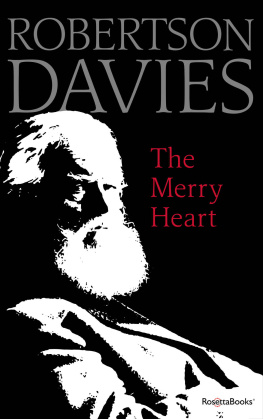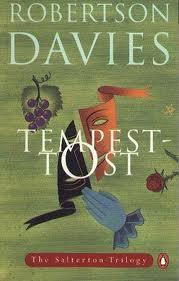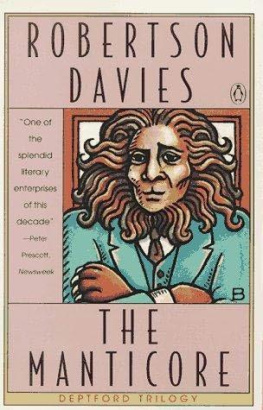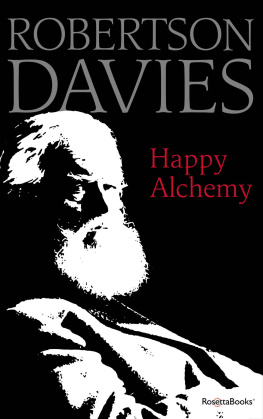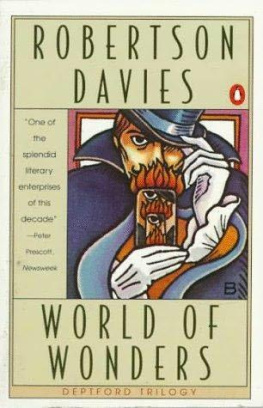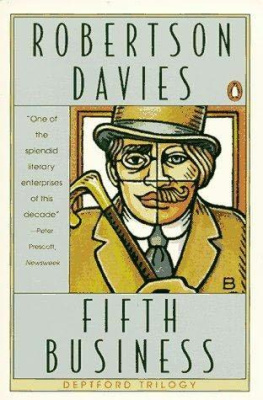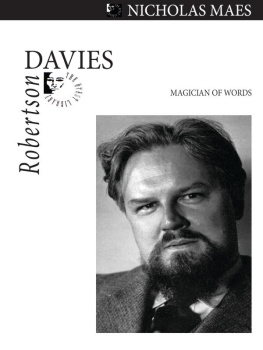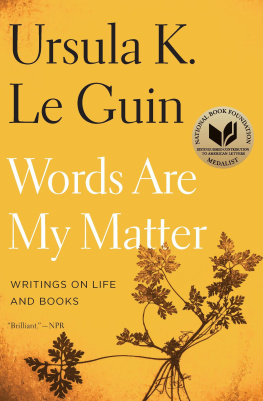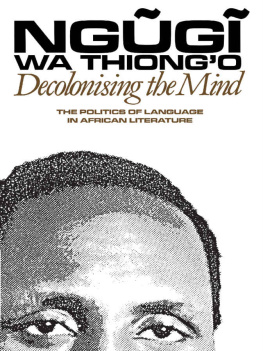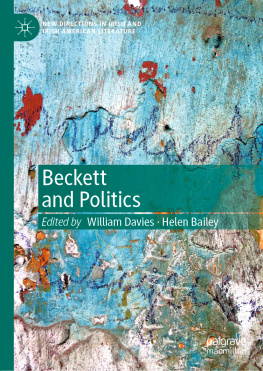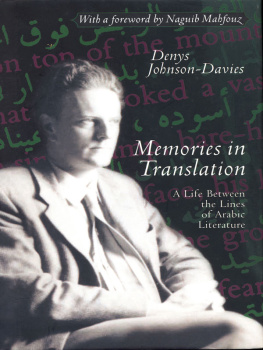Praise for The Merry Heart
Wisdom is always in short supply. Usually it comes in medicine bottle form, promising to be good for us; but when it is as diverting as Robertson Daviess The Merry Heart, it serves as a magic elixir.
The Boston Globe
A great book to reflect on during a summer evening. Or beside a fire when all is dark outside. It is a blessing to have yet one more book from the late Robertson Davies. It is a pleasure to follow in [the] steps of one who has wrestled with language and won.
Houston Chronicle
The inimitable novelist gives an exuberant posthumous performance.
Kirkus Reviews
A masterpiece that serves in remembrance of an accomplished voice.
Edmonton Sun
Daviess fans will be delighted by this posthumously published book and those who have yet to experience this generous soul [will find The Merry Heart] a wonderful introduction.
St. Petersburg Times
The selections reveal as much about Daviess perceptions of the role of literature in society as they do about his personal devotion to reading and writing. Witty, perspicacious, and effulgently outspoken, Davies is a bridge between the more leisurely eloquence of the nineteenth century and the seductive rush of our era, firmly attached to moral and artistic standards yet welcoming the onslaught of change.
Booklist
The Merry Heart
Reflections on Reading, Writing, And the World of Books
Robertson Davies

Rosetta Books New York, 2019
The Merry Heart
Copyright Pendragon Ink, 1996
Introduction Douglas M. Gibson, 1996
Cover art and Electronic Edition 2019 by RosettaBooks LLC
All rights reserved. No part of this book may be used or reproduced in any form or by any electronic or mechanical means, including information storage and retrieval systems, without permission in writing from the publisher, except by a reviewer who may quote brief passages in a review.
Cover jacket design by Lon Kirschner
ISBN e-Pub edition: 978-0-7953-5243-0
ISBN POD edition: 978-0-7953-5259-1
A merry heart doeth good like a medicine: but a broken spirit drieth the bones.
proverbs 17:22
Contents
Introduction
W hen Robertson Davies died on December 2, 1995, the sad news circled the globe, inspiring obituaries in a dozen countries. All of the writers and readers too many to count mourned the fact that a unique, utterly distinctive voice had been stilled.
It is true that the world will never see another novel by Robertson Davies. Our sense of loss is all the greater because even after he had passed his eightieth year, there was no sense of decline in his work. He was writing at the top of his form until his final, short illness. It is notable that The Cunning Man, one of his most accomplished and successful novels, was completed in the spring of 1994, when he was eighty years old. But while he researched and prepared for the novel that would follow it to make up what might have become known in time as The Toronto Trilogy he went on writing, producing speeches, book reviews, even a libretto.
Fortunately, because of his prodigious energy and discipline (he believed that the writers craft was like a muscle, and needed constant exercising), we are able to celebrate a new book by Robertson Davies.
In the last months of his life, as his publisher I had started to lay plans with him for the publication of such a work. There was a happy precedent. In 1977 we had worked together to bring out a selection of his speeches, entitled One Half of Robertson Davies, which was published to a warm reception. The new plan was to use that book as a model, but to range a little more widely, including not only his speeches but other writing such as book reviews, articles, and other occasional pieces. He would put the selection together with a general preface, and would provide additional introductions to each of the chosen pieces.
My letter confirming these arrangements and planning for publication in Canada in the fall of 1996 lay on his desk unopened at the time of his death.
Some weeks later his widow, Brenda Davies, and their second daughter, Jennifer Surridge, contacted me. They had decided to create a literary enterprise Pendragon Ink to look after his works, published and unpublished. As the first order of business, they had decided to carry forward the plans for the selection.
What their researches revealed was extraordinary. The fresh, unpublished material that existed in his files was so extensive that even after secondary material had been set aside, the first-class pieces would clearly fill not one but two books. After further editorial consultations it was decided that one book should be devoted to Robertson Davies on the performing arts: on his great love, the theatre, on opera and on music. The title for that selection would be Happy Alchemy.
The other book to be published first, and which you now hold in your hand would deal with the world of books. More specifically, it would deal with writing, and reading, and other authors, and even with fragments of never-written books. It would, in short, be a cheerful mixture of ingredients with something for all true book-lovers.
What should such a book be called?
Brenda Davies had the answer. Her husband, she knew, had always wanted to call one of his novels The Merry Heart, an idea taken from the old saying: A merry heart doeth good like a medicine. This was ideal. The title was appropriate, since the book was indeed uplifting, full of keen interest in and relish for life. There seemed no better source for a title than Robertson Davies himself. And, above all, it was pleasing to be able to fulfil a long-held hope of his at this late date.
Sadly, that very lateness means that the selection here lacks some of the central contributions by Robertson Davies we had originally planned. First, the final selection is not his. Second, in the place of the individual introductions to the pieces he planned to provide, we have used his own words from diaries and letters, along with further details about the occasion and the setting that often draw on Judith Skelton Grants 1994 biography, Robertson Davies: Man of Myth. And third, although the alert reader will find several themes, and even specific examples, re-emerging in these pieces, we have allowed some elements of repetition to stand rather than leave the reader wondering what editorial excision followed the traditional tantalizing editorial marks.
For the same reasons, in the following pieces that were originally delivered as speeches, we have kept the introductory ritual paragraph. Here we know we act with Robertson Davies endorsement.
In One Half of Robertson Davies he wrote:
Because these pieces are, in the main, speeches, I decided not to cut out those passages at the beginning of each in which I have, so to speak, made my bow to the audience, paid it a few compliments, and thanked the Chairman. These are necessary decorums of public speaking, and to leave them out would be to do precisely what I am determined not to do that is, to pretend that I am offering you something to read, rather than something to hear. And, to let you in on a speakers secret, it is in such passages that he tries out his voice (because he is always fearful that it may have deserted him during the Chairmans introduction) and winds up his courage to a point which makes it possible for him to speak at all. Because, you see, the poor wretch is nervous.
Speakers nerves affect them in various ways. Some tremble, some become frenzied. I lose all confidence, and suffer from a leaden oppression that makes me wonder why I ever agreed to speak at all; the Tomb and the Conqueror Worm seem preferable to delivering the stupid and piffling speech I have so carefully prepared. But there is no escape; speak I must, and I need a ritual paragraph in which to ease myself into the job.
Next page
